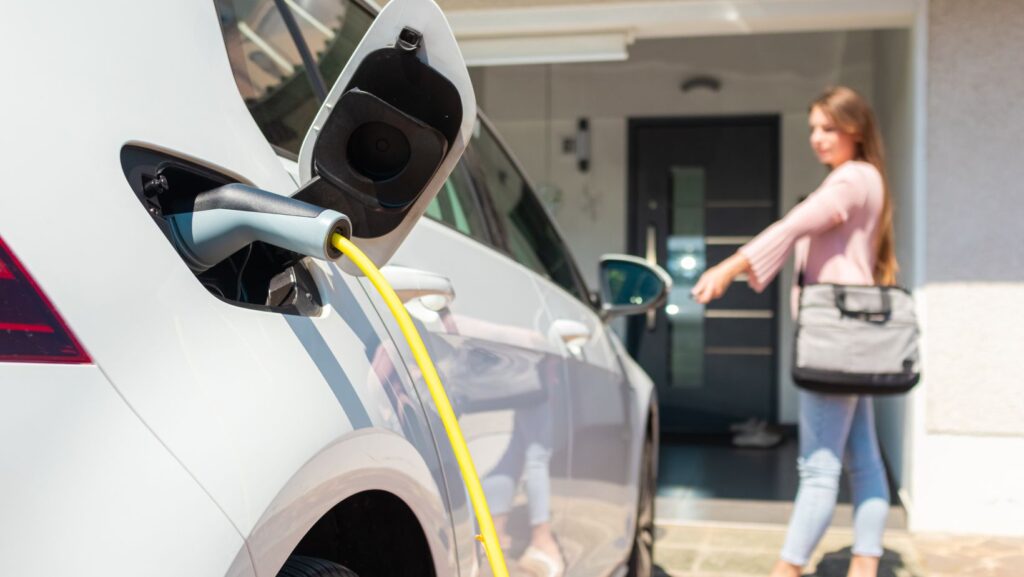As electric vehicles (EVs) become increasingly popular, homeowners consider installing home EV chargers. This installation is crucial for the convenience and efficiency of charging EVs, eliminating the frequent need to visit public charging stations. Understanding the cost of hiring services for home EV charger installation is essential for homeowners planning this upgrade. We will explore various factors that influence these costs, including equipment, labor, and additional expenses that might arise during installation.
The Cost of Equipment
The first significant cost to consider is the price of the EV charging equipment itself. There are primarily two types of home EV chargers: Level 1 and Level 2 chargers. Level 1 chargers are typically slower and use a standard 120-volt outlet, often included with the purchase of an EV. These chargers can be sufficient for overnight charging but may take up to 20 hours to fully charge a vehicle. In contrast, Level 2 chargers are much faster, requiring a 240-volt outlet, and can fully charge an EV in approximately 4 to 8 hours, depending on the vehicle and charger model.
Basic models offer standard features, while advanced models include smart features such as Wi-Fi connectivity, app integration, and enhanced safety features. These smart chargers allow users to monitor and control the charging process remotely, providing added convenience and efficiency. It’s important to note that while Level 2 chargers are more expensive upfront, their faster charging times and advanced features often make them a worthwhile investment for most EV owners.
Labor Costs for Installation
Labor costs constitute another significant portion of the overall expense when installing a home EV charger. Installing a Level 2 charger typically requires a licensed electrician, as it involves handling high-voltage electrical wiring and ensuring compliance with local building codes and safety regulations. Labor costs can vary widely based on several factors, including the electrician’s rates, the complexity of the installation, and the condition of the existing electrical infrastructure in the home.
Additional Expenses
Beyond the costs of equipment and labor, homeowners might incur several additional expenses when installing a home EV charger. One potential cost is obtaining the necessary permits, which local governments often require to ensure that the installation meets all safety and building codes. Permit fees can vary depending on the location and the specific requirements of the municipality.
Another potential expense is the cost of materials needed for the installation. This can include electrical wiring, conduit, circuit breakers, and other hardware required to connect the charger to the home’s electrical system.
Sometimes, homeowners may need to modify their garage or parking area to accommodate the EV charger. This could include installing a new outlet, creating additional electrical outlets, or even adding a weatherproof enclosure for outdoor installations. The costs for these modifications can vary widely, but homeowners should budget for potential additional expenses to ensure the installation is completed smoothly and safely.
The Role of Incentives and Rebates
One crucial factor that can significantly offset the cost of installing a home EV charger is the availability of incentives and rebates. Many governments and utility companies offer financial incentives to encourage the adoption of electric vehicles and the installation of home charging stations. These incentives can come in the form of tax credits, rebates, or grants and can cover a substantial portion of the installation costs.
Additionally, many states and local utilities offer incentives, which can further reduce homeowners’ out-of-pocket expenses. Homeowners should research the available incentives in their area and ensure they meet all eligibility requirements to take full advantage of these programs.
Choosing the Right Installer
Selecting the home EV charger installation experts ensures a smooth and safe installation process. Homeowners should seek electricians who have experience with EV charger installations and are familiar with these projects’ specific requirements and challenges. It is beneficial to check for any certifications or training related to EV charger installations, as well as to read reviews and ask for references from past clients. Clear communication with the installer is essential to discuss the specifics of the installation, including any potential upgrades to the electrical system and the total estimated costs. By choosing a qualified and reputable installer, homeowners can avoid possible issues and ensure that their EV charger is installed correctly and efficiently, providing peace of mind and reliable performance for years.
The cost of hiring services for home EV charger installation can vary widely, depending on several factors, including the type of charger, labor costs, additional expenses, and available incentives. While the upfront costs may seem significant, the long-term benefits of having a convenient and efficient home charging solution can outweigh the initial investment. We have explored various cost components and considerations homeowners should know when planning for an EV charger installation. By understanding these costs and exploring potential incentives, homeowners can make informed decisions and enjoy the benefits of a home EV charging station, contributing to a more sustainable and eco-friendly lifestyle.



